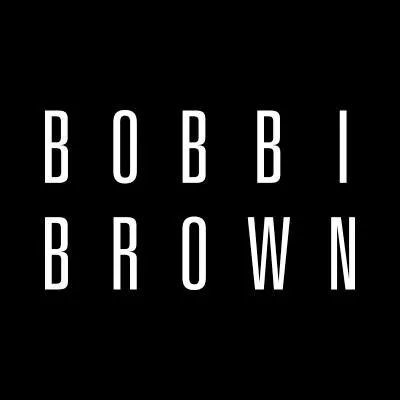
Bobbi Brown
Learn more about our scoring →
About Bobbi Brown
Bobbi Brown represents a premium beauty brand built on the philosophy of natural, effortless makeup that enhances individual features rather than creating dramatic transformations. Since its founding in 1991, the brand has established market leadership in luxury makeup, particularly foundation and concealer formulations designed for diverse skin tones. The brand's professional-quality approach makes expert-level products accessible to everyday consumers through department stores and specialty beauty retailers.
As a subsidiary of Estée Lauder Companies, Bobbi Brown operates within a large corporate sustainability framework that provides both opportunities and limitations. The brand benefits from parent company initiatives including RSPO membership for sustainable palm oil sourcing and corporate-level carbon offset programs, yet faces challenges in developing brand-specific environmental and social impact initiatives that would distinguish it from other portfolio brands.
Bobbi Brown's sustainability performance reflects the complexities of operating within a large beauty conglomerate that continues animal testing practices in certain markets while pursuing selective environmental initiatives. The brand's premium positioning creates expectations for sustainability leadership that remain partially unfulfilled due to gaps in cruelty-free certification, comprehensive chemical safety policies, and independent conservation programs that would appeal to increasingly conscious luxury beauty consumers.
The Good Stuff
Where Bobbi Brown appears to be making meaningful progress. We cross-referenced these findings with multiple independent sources.
Carbon Offset Shipping Programs
Participates in parent company carbon offset initiatives for online orders in U.S. and Australian markets, demonstrating climate-conscious shipping practices
Parent Company RSPO Sourcing
Benefits from Estée Lauder's RSPO membership for sustainable palm oil, mica, and shea sourcing with published ingredient transparency through corporate initiatives
Corporate Packaging Targets
Aligns with parent company's comprehensive packaging sustainability program targeting recyclable packaging across portfolio brands
The Reality Check
Areas where the publicly available data gets murky, incomplete, or concerning. We're transparent about the limitations of our analysis.
Animal Testing in Required Markets
Continues animal testing when required by law, including in China, without independent cruelty-free certification from recognized verification bodies
Limited Vegan Formulations
Extensive use of animal-derived ingredients including beeswax, carmine, and lanolin across product lines with no dedicated vegan certification or product lines
Brand-Level Program Gaps
Lacks brand-specific initiatives for labor standards, water stewardship, biodiversity protection, chemical safety policies, or wildlife conservation support
Bobbi Brown's
Impact Aura
A visual representation of Bobbi Brown's positive impact
across People, Planet and Animals
Each colored area represents the brand's performance in that sustainability category. The size and intensity of each blob corresponds to their score—larger, more vibrant areas indicate stronger performance.
Our Research
Key findings from our comprehensive analysis of Bobbi Brown's sustainability performance across People, Planet & Animals impact.
Positive Impact on People
Research Highlights
- Supply chain transparency benefits from parent company Estée Lauder's RSPO membership for palm oil, mica, and shea sourcing
- Ingredient safety analysis reveals ongoing use of petrochemicals, PEGs, petrolatum, and oxybenzone without comprehensive chemical hazard policies
- Labor practices show no verifiable evidence of independent audits or fair labor certifications at brand level
- Marketing integrity demonstrates transparency in ingredient lists with no documented legal challenges regarding misleading claims
- Social impact initiatives remain concentrated at parent company level with no identified brand-specific community programs
Evidence Strength
Parent company provides strong sourcing infrastructure, significant gaps in brand-level labor verification and social impact documentation
Positive Impact on Planet
Research Highlights
- Climate action includes carbon offset programs for online orders in U.S. and Australian markets through parent company initiatives
- Packaging sustainability participates in Estée Lauder's recyclable packaging targets without brand-specific implementation evidence
- Water stewardship shows no brand-level conservation programs despite parent company corporate policies
- Biodiversity protection remains limited to parent company's isolated sandalwood project with no brand-specific initiatives
- Chemical responsibility lacks brand-level hazard bans or green chemistry policies beyond parent company framework
Evidence Strength
Parent company climate and packaging initiatives provide framework, minimal evidence for brand-specific environmental programs
Positive Impact on Animals
Research Highlights
- Animal testing continues when required by law, including in markets like China, without independent cruelty-free certification
- Vegan formulations severely limited by widespread use of beeswax, carmine, and lanolin across product lines
- Wildlife impact programs show no brand-specific conservation initiatives or habitat protection support
- Sustainable sourcing leverages parent company's RSPO membership for palm oil, mica, and shea ingredient traceability
- Conservation funding shows no evidence of dedicated wildlife protection partnerships or environmental grants at brand level
Evidence Strength
Clear documentation confirms animal testing practices and limited vegan options, with sourcing transparency through parent company infrastructure
See the Receipts
We don't just make claims—here are the official certifications that prove Bobbi Brown's sustainability commitments.
Frequently Asked Questions
Is Bobbi Brown sustainable?
Bobbi Brown demonstrates selective sustainability strengths through parent company Estée Lauder's RSPO sourcing and carbon offset programs. However, significant gaps exist in brand-specific environmental initiatives, cruelty-free certification, and comprehensive chemical safety policies that limit its overall sustainability profile compared to dedicated clean beauty brands.
Is Bobbi Brown cruelty-free?
Bobbi Brown is not cruelty-free and continues animal testing when required by law, including in markets like China. The brand lacks certification from independent cruelty-free verification bodies and does not qualify for consumers seeking verified cruelty-free beauty products.
Does Bobbi Brown have carbon-conscious shipping?
Bobbi Brown participates in parent company carbon offset programs for online orders in U.S. and Australian markets. These initiatives demonstrate climate-conscious shipping practices, though broader carbon footprint reduction strategies remain concentrated at the corporate level rather than brand-specific implementation.
Are Bobbi Brown products vegan?
Bobbi Brown products are not vegan, with extensive use of animal-derived ingredients including beeswax, carmine, and lanolin across product lines. The brand has not established dedicated vegan formulations or achieved vegan certification for any product categories.
What is Bobbi Brown's parent company responsible for?
As part of Estée Lauder Companies, Bobbi Brown benefits from corporate RSPO membership for sustainable sourcing, recyclable packaging targets, and carbon offset shipping programs. This parent company relationship provides sustainability infrastructure while limiting brand-specific environmental and social impact initiatives.
Does Bobbi Brown use safe ingredients?
Bobbi Brown's ingredient safety practices show mixed performance with transparency in ingredient disclosure but continued use of petrochemicals, PEGs, petrolatum, and oxybenzone. The brand lacks comprehensive chemical hazard policies and PFAS bans that would strengthen its ingredient safety profile.
What are Bobbi Brown's biggest sustainability gaps?
Bobbi Brown's primary sustainability gaps include animal testing practices in required markets, limited vegan formulations, and lack of brand-specific programs for labor standards, water stewardship, biodiversity protection, and wildlife conservation that would distinguish it as a sustainability leader.
Ready to Shop Bobbi Brown?
Find Bobbi Brown products through our trusted retail partners
The Bottom Line
Bobbi Brown operates within Estée Lauder's corporate sustainability framework, benefiting from RSPO sourcing and carbon offset programs while facing significant limitations in cruelty-free certification, vegan formulations, and brand-specific environmental initiatives. The brand's sustainability performance reflects both the advantages and constraints of large corporate beauty operations, with substantial opportunities for improvement in areas requiring independent verification and dedicated brand-level conservation programs.
Compare Brands
See how Bobbi Brown stacks up against similar brands


